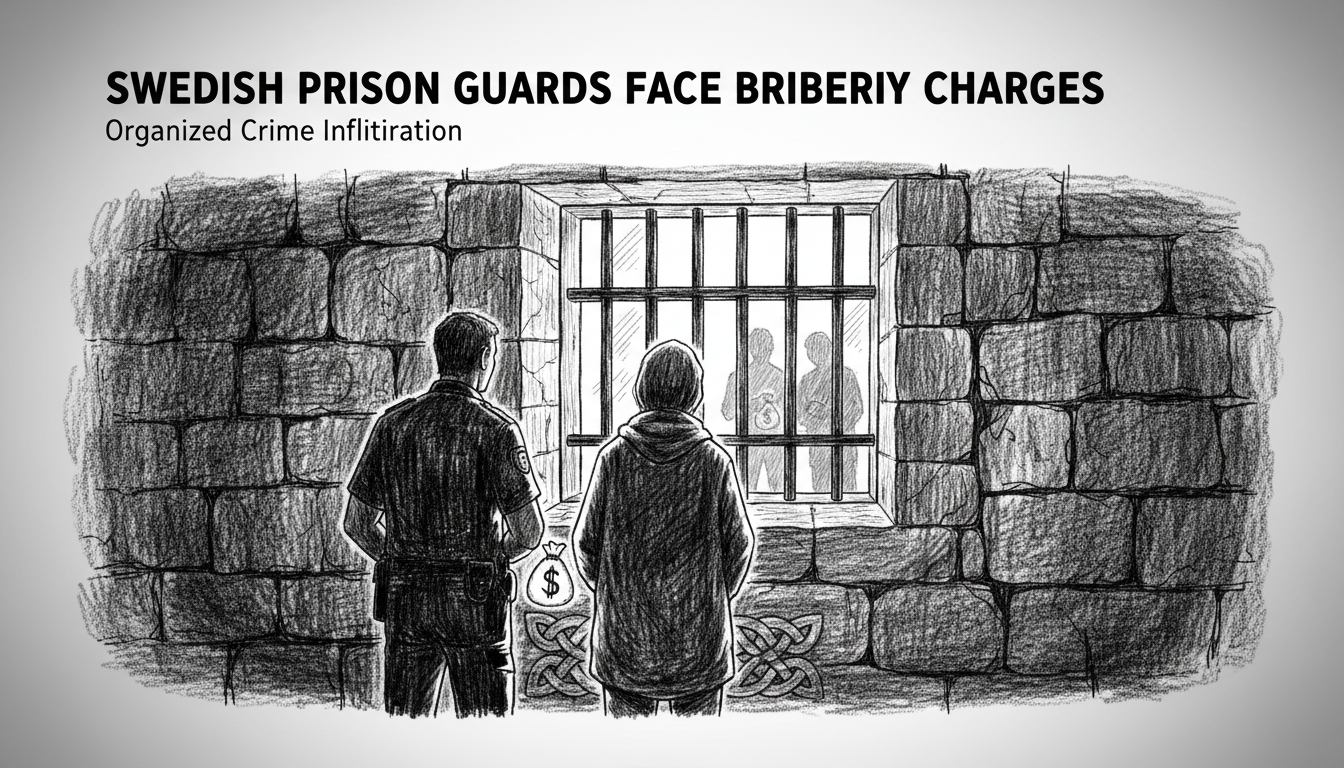Two former employees at Norrtälje prison face detention requests in Gothenburg. Authorities accuse the man and woman of gross misconduct and serious bribery acceptance. Prosecutors seek detention for three additional individuals in the same case. These suspects allegedly bribed the correctional officers. Two of the accused are young men connected to the Södra Biskops criminal network. Police confirm the third suspect maintains strong ties to the same gang organization.
This case exposes a critical vulnerability in Sweden's prison system. Criminal networks continue attempting to infiltrate correctional facilities through corrupt staff members. The Södra Biskops gang operates primarily in Gothenburg's southern districts. Their members face numerous ongoing investigations for violent crimes and drug trafficking.
Sweden's prison service faces mounting pressure to prevent internal corruption. Previous incidents revealed similar bribery attempts across multiple facilities. The justice system now implements stricter employee screening and monitoring protocols. These measures aim to prevent organized crime from compromising prison security.
International readers should understand Sweden's unique gang landscape. Swedish criminal networks differ significantly from traditional organized crime groups. They often consist of loose affiliations between neighborhood-based factions. Many members join during their teenage years and maintain connections while incarcerated.
The Norrtälje facility houses approximately 150 inmates in Södermanland County. Located east of Stockholm, this medium-security prison handles various offender categories. Recent government reports highlighted staffing challenges throughout Sweden's correctional system. These shortages potentially create opportunities for corruption attempts.
What consequences might these corruption charges carry? Swedish law imposes severe penalties for public officials accepting bribes. Convictions typically result in prison sentences and permanent employment bans. The case also raises concerns about information security within correctional facilities. Corrupt staff could potentially leak sensitive inmate details or facilitate illegal communications.
This incident represents broader patterns affecting Nordic countries. Norway and Denmark reported similar corruption cases involving prison staff in recent years. Criminal organizations increasingly target correctional systems across the region. They seek to maintain operations and influence from behind bars.
The ongoing investigation will likely examine communication records and financial transactions. Prosecutors need concrete evidence linking payments to specific favors or information sharing. This case could trigger wider reviews of staff recruitment and oversight procedures throughout Sweden's prison system.

